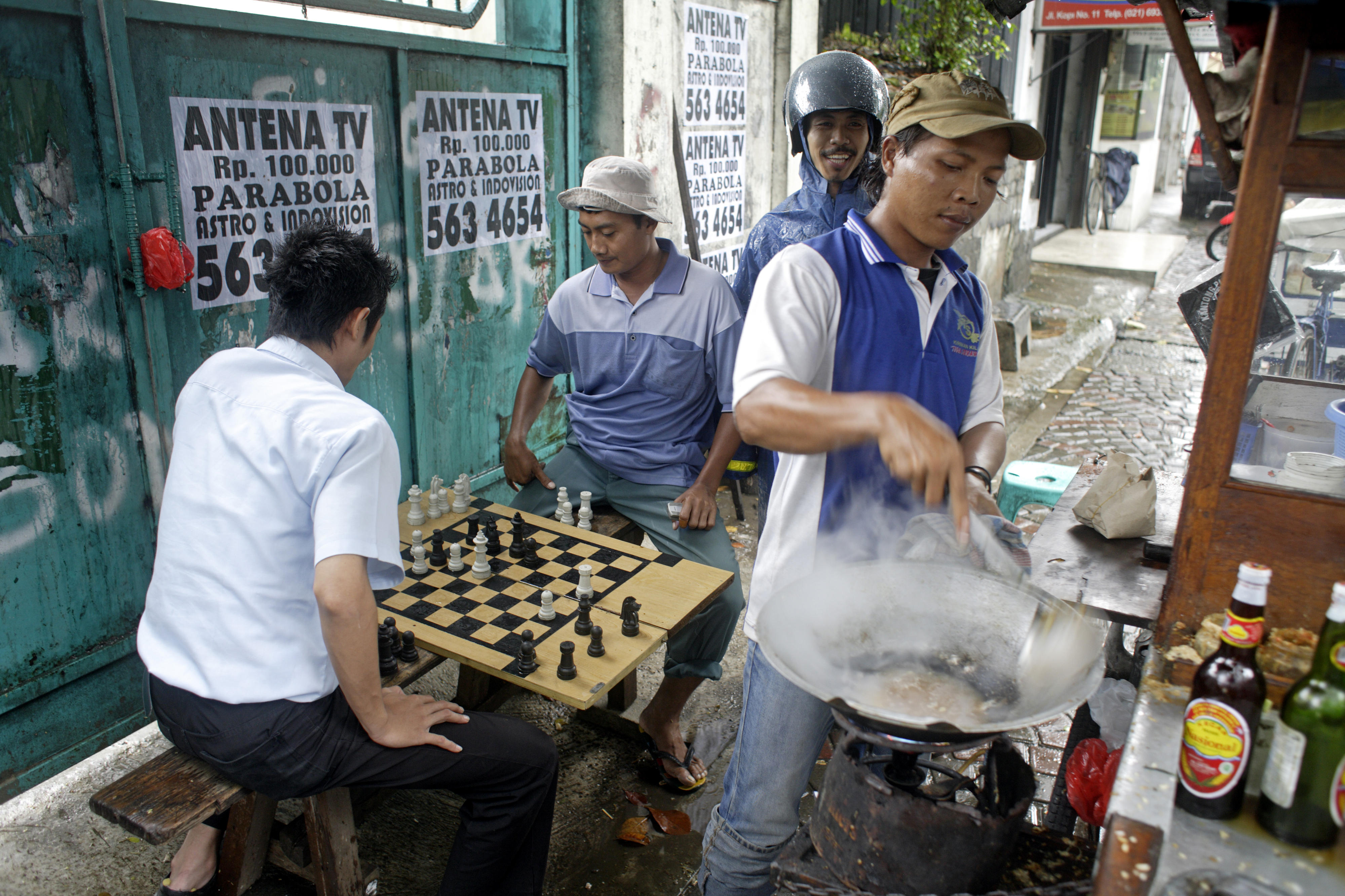Street scene in Jakarta, Indonesia
Copyright© Thomas Imo/photothek.net
Political situation Dealing with the consequences of years of dictatorship
The emerging economy of Indonesia is a member of the Group of 20 (G20). As an economic heavyweight in the region, Indonesia plays a key role in the Association of Southeast Asian Nations (ASEAN). Indonesia also became a member of BRICS at the start of 2025.
Indonesia’s progress has included expanding its infrastructure, healthcare and education systems, increasing digitalisation and alleviating poverty. Recently, however, this reform momentum has slowed slightly. An active civil society, independent media and universities are providing input on political processes and acting as critical observers.
Rule of law and human rights
In many areas, the necessary reforms have not yet been completed. For example, the justice system is often still unable to comprehensively guarantee due process under the rule of law. Corruption remains widespread, and the government’s efforts to combat it sometimes meet with considerable resistance. In the Corruption Perceptions Index (External link) compiled by the non-governmental organisation Transparency International, Indonesia ranked 99th out of the 180 countries evaluated in 2024 (110th in 2022).
The human rights situation is good overall. Deficits are to be found above all in connection with protecting ethnic, religious and sexual minorities (see also Social situation). There is also need for action with regard to gender equality: women are significantly underrepresented in leadership positions in politics, administration, business, the judiciary and the education system. Despite a legal ban, the practice of female genital mutilation is still common. After six years of debate, the Indonesian parliament passed a law to fight sexual violence in April 2022. This has made the prosecution of cases of domestic violence, for example, easier and stricter. However, enforcing the corresponding penalties is difficult because of religious and cultural resistance.
There has been progress on achieving the goal of eradicating child labour. However, it is estimated that hundreds of thousands of children are still expected to contribute to the family income, for example by working in agriculture.
Freedom of the press and freedom of opinion are recognised. However, intimidation and attacks on journalists still occur frequently. Given the lack of clarity in the definition of certain crimes (such as slander, libel and blasphemy), journalists are regularly at risk of being prosecuted for their reporting activities.
Decentralisation and civic participation
A reform programme for decentralisation, which received support from German development cooperation for transferring responsibilities to levels of government administration that are closer to the people, has had a positive impact. Gradually, towns, districts and provinces have taken over responsibility for numerous services, including health and education, infrastructure, environmental matters and public order. As a result, considerable new scope has opened up for public investment and for more civic participation at the local level. That scope now needs to be used in an effective and transparent manner.
Regional conflicts
The regional conflicts and sometimes violent disputes of the past have become less acrimonious. The former Indonesian province of Timor-Leste, the occupation of which was accompanied by grave human rights violations, became independent in 2002. Since then, both countries have been working towards reconciliation and good neighbourly relations. The province of Aceh gained wide-ranging autonomy in 2002, ending decades of fighting. The situation has also stabilised in Central Sulawesi and on the Maluku Islands (Moluccas), where ethnic and religious tensions have largely been put to rest.
In certain regions, however, there continue to be confrontations – sometimes violent – between separatist groups and state security forces.
As at: 12/08/2025
